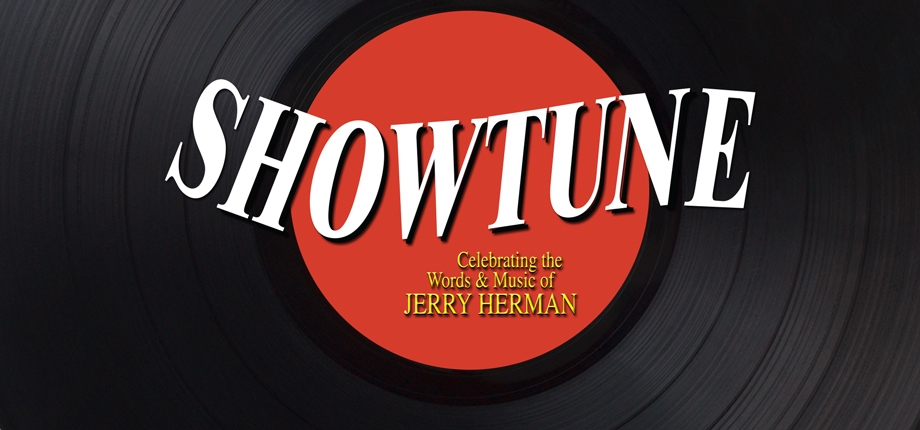Filichia Features: There’s No Tune Like a SHOWTUNE

Filichia Features: There’s No Tune Like a SHOWTUNE
You wouldn't expect Dolly Levi, Mame Dennis, Mabel Normand and Albin (a/k/a Zaza) to be in the same musical.
After all, when we meet the heroine of Hello, Dolly! she's living in the 1880s. We follow silent film star Mabel Normand's life on and off the screen from 1911 to 1930, but if she ever wound up at one of Mame's parties during the Roaring '20s, we never heard of it.
Mame's adventures lasted through the late 1940s - just around the time a man was born as Albin but in his adulthood preferred to become San Tropez's most popular female impersonator Zaza. Both were made famous in three La Cage aux Folles films and a smash-hit musical.
Never mind. These four characters (or five, if you prefer) were all set to words and music by Jerry Herman between 1964 and 1983. Now they appear in Showtune, a jukebox musical that celebrates the esteemed composer-lyricist's songs.
Your cast of seven will sing and dance to five songs from La Cage aux Folles, eight from Hello, Dolly! and nine each from Mame and Mack & Mabel. (The last-named is Herman's 1974 cult favorite that will get a February 2020 concert revival at Encores!)
But, as advertisers like to say, there's more. Four songs are included from Herman's other cult favorite Dear World, which set Jean Giraudoux's The Madwoman of Chaillot to music. Two songs that Herman wrote for A Day in Hollywood/A Night in the Ukraine -- when its writers during the Baltimore tryout admitted that they needed help -- are here, too.
There's one selection each from The Grand Tour, Herman's 1979 musical, and Milk and Honey, his first full score that Broadway enjoyed for 15 solid months from 1961 to 1963.
That song is "Shalom," which - at least as of February 22, 1964 - was Herman's favorite. On that date, Saturday Review released its survey of 42 songwriters who'd had at least one produced Broadway musical. They were asked which of their many songs was the one they liked best.
At that early stage in his career, however, Herman still had five musicals ahead of him and two where he added a couple of songs ( Ben Franklin in Paris in 1964 was the other). Today he might give a different answer. Herman once told me that he never felt that he'd written a "classy" ballad until he penned "If He Walked into My Life." That was still many months away when the article was published.
It too appears in Showtune.
Granted, these famous Herman characters only make glorified cameos in Showtune. Dolly and Mame join forces to do the classic "Bosom Buddies," but the others never meet. Mabel in indeed Mabel Normand, but Zaza is now a married - and closeted - transvestite.
And marriage is what's most on librettist Paul Gilger's mind: the good ("I'll Be Here Tomorrow"), the bad ("Wherever He Ain't") and the worse when everyone agrees that "We need a little Christmas now." Although the song has become an unexpected Yuletide standard, it can cheer depressed people at any time of year (which is how it's used in Showtune). Herman found great worth in everyday activities and wanted to celebrate every 24 hours simply because "It's Today" - another Mame rave-up you'll hear here.
Sure, all marriages get into some conflict - even the ones that last till death does one party part. But almost every Jerry Herman musical can be described by a Stephen Sondheim lyric: "And a happy ending of course." In fact, although Mack & Mabel ends up bittersweet, Herman had Mack Sennett sing "I Promise You a Happy Ending."
That leads us to Showtune's finale. What other song in the Herman oeuvre could be involved but La Cage's "The Best of Times (Is Now)"? I've seen it performed dozens upon dozens of times, from the show's Boston tryout in 1983 to a community theater production only a few months ago - and each and every time not many measures of the song need to pass before the audience begins hand-clapping in rhythm.
Best of all, it's "The Best of Times" itself that makes the audience respond in this fashion. No actor need come downstage, place his hands over his head, clap in rhythm to give the universal sign to "Clap now!" curtly nod and yell out "Put your hands together now! Cummon!"
No -- a Jerry Herman's showtune gets people to clap in rhythm because they want to.
You may e-mail Peter at pfilichia@aol.com. Check out his weekly column each Monday at www.broadwayselect.com and Tuesday at www.masterworksbroadway.com . He can be heard most weeks of the year on www.broadwayradio.com.

























